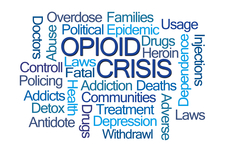 Perhaps. A lawyer who has actual knowledge that another lawyer “has committed a violation of the Rules of Professional Conduct that raises a question as to the lawyer’s honesty, trustworthiness or fitness as a lawyer in other respects, shall inform the Office of Disciplinary Counsel.” See La. Rules of Prof’l Conduct r. 8.3(a). If another lawyer’s use of alcohol or drugs is impairing that lawyer’s ability to provide competent and diligent representation to clients, then the reporting obligation set forth in Rule 8.3(a) would be triggered. If a lawyer, however, has no actual knowledge of such harm or other violations, no reporting obligation would exist, although the lawyer may still choose to seek help for the other lawyer through, among other organizations, the Louisiana Judges’ and Lawyers’ Assistance Program.
Perhaps. A lawyer who has actual knowledge that another lawyer “has committed a violation of the Rules of Professional Conduct that raises a question as to the lawyer’s honesty, trustworthiness or fitness as a lawyer in other respects, shall inform the Office of Disciplinary Counsel.” See La. Rules of Prof’l Conduct r. 8.3(a). If another lawyer’s use of alcohol or drugs is impairing that lawyer’s ability to provide competent and diligent representation to clients, then the reporting obligation set forth in Rule 8.3(a) would be triggered. If a lawyer, however, has no actual knowledge of such harm or other violations, no reporting obligation would exist, although the lawyer may still choose to seek help for the other lawyer through, among other organizations, the Louisiana Judges’ and Lawyers’ Assistance Program.
As to seeking help for a client with a substance abuse problem, a recent Illinois State Bar Association ethics opinion advises that a lawyer may be permitted—although not required—to disclose otherwise confidential information to seek assistance for the person. A lawyer who “reasonably believes” that a client has “diminished capacity,” and is “at risk of substantial physical, financial or other harm unless action is taken,” may undertake “reasonably necessary protective action” to protect the client’s interests. In so doing, the lawyer may disclose information otherwise protected as “confidential” by Rule 1.6. See La. Rules of Prof’l Conduct r. 1.14. The advisory opinions concludes that:
an attorney having a client whose drug or other conditions create a reasonable belief on the part of the attorney that the client is of diminished capacity should take into account the provisions of Rule 1.14, and that the attorney may have the right under such Rule, even absent the existence of an obligation to report . . . and despite the confidentiality provisions of Rule 1.6, to obtain help for the client under Rule 1.14. We thus recommend that the inquiring attorney review the provisions of Rule 1.14 with a view to whether it provides an additional avenue for obtaining relief for his addictive client.
See Il. State Bar Assoc’n, Professional Conduct Advisory Op. No. 17-01 (Mar. 2017).
